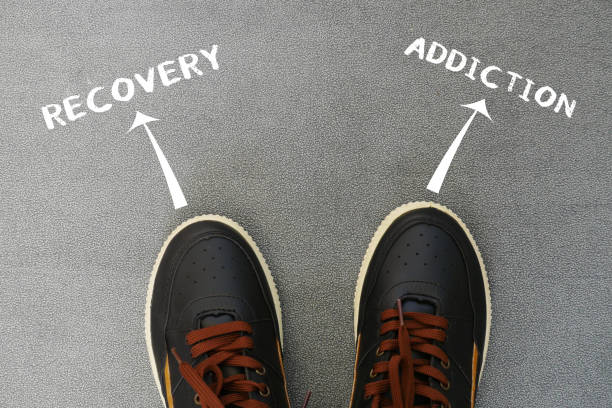This content is for informational and educational purposes only. Always consult a qualified healthcare provider.
Last Updated on July 23, 2025 by Grace Oluchi
I relapsed.
Not just once. Not in a “whoops” kinda way.
No, I dove head-first into the thing I swore I’d never touch again like it was an old lover with new perfume.
And you know what’s crazy?
It felt good.
For 5 seconds.
Then came the guilt, the shame, the full-blown mental courtroom in my head.
Ever been there?
Yeah. Me too. More than I like to admit.
📋 Table of Contents
The Key Takeaway.
Relapse isn’t proof that you’ve failed. It’s proof that you’re still fighting. That somewhere deep down, something in you still wants this. But let’s be honest, it’s messy. It’s ugly. It makes you question everything. The goal isn’t to pretend it didn’t happen. The goal is to know exactly what to do after it happens. That’s where your real power lives. Right there in the “after.”
What Is A Relapse?
Let’s not do the whole dictionary-definition thing, okay? You already know what it is.
Relapse is that moment when your hands move faster than your brain.
- When your body betrays the promises your heart made.
- When your brain whispers, “Just this once,” and before you can blink, you’re back in the place you clawed your way out of.
Whether it’s drugs, cutting, bingeing, skipping meds, ghosting therapy, texting your ex, hating your body again, ignoring your triggers, relapse is any kind of emotional U-turn back into a version of yourself that you’re trying to outgrow.
Simple as that.
How Can You Cope With A Relapse And Stay On Track?


Don’t romanticize what broke you.
Sometimes we don’t just relapse, we run back to the pain like it’s home. Because it’s familiar. Predictable. Even comforting in a weird, twisted way.
Like, “At least I know this pain.” The new healthy stuff, new habits and growth feels like walking in the dark.
But hear me loud and clear: Just because the wound feels familiar doesn’t mean it’s healing. It just means you haven’t let it close. Relapse tricks you into thinking the past is safer than the unknown. That’s a fat lie.
Feel the shame, but don’t unpack there.
- You’re allowed to feel like crap. Seriously.
- You’re allowed to cry, punch a pillow, scream into your journal, lay on the floor like a corpse. Be dramatic.
But don’t live in that shame.
Feel it. Name it. Then remind yourself: This moment is one scene in your story. It is not the final page. Don’t write yourself off because of one stupid chapter. You can hate what you did without hating you.
Identify the lie that made it feel okay.
Every relapse has a lie behind it. And it’s not always loud. Sometimes it’s a soft talk like:
- “You’re always going to end up here anyway.”
- “Nobody cares if you mess up.”
- “You’ve already ruined it, might as well go all in.”
- “This one time won’t count.”
Catch that lie. Expose it. Drag it out into the light. Then? Clap back with truth.
Like “I may have messed up, but that doesn’t make me a mess.”
Because listen, most relapses start in your head long before they show up in your habits. You’ve got to mentally fight before you can physically win.
Stop making your healing look aesthetic.
Healing doesn’t look like journal spreads and yoga mats and mint tea. It looks like crying on the bathroom floor, telling your accountability buddy you messed up, resisting the urge to disappear, and showing up again the next day with puffy eyes. That’s real healing.
Relapse messes us up extra because we think healing is supposed to be pretty. But it’s not.
It’s gritty, bloody, awkward, and silent.
And sometimes, staying on track just means surviving the day without quitting on yourself.
Create a ‘Post-Relapse Ritual’ yes, really.
We plan for success. But do you have a plan for failure? Let me say that again:
Do you have a plan for when you mess up?
Because you will. We all do. And that plan can literally save your life. Here’s what mine looks like:
- 10 minutes of crying, cursing, or laying in a fetal position.
- Then I shower. Even if I don’t want to. Even if I sit on the floor and let water hit my back like I’m in a dramatic music video.
- Then I write one sentence. Just one, something like: “Today was hard, but I’m harder.”
- Then I text one friend. Doesn’t have to be deep. Just something like, “Not okay, but I’m still here.”
It’s simple. It’s not revolutionary. But it gives structure to the storm. And when you feel lost, structure saves you.
Don’t wait to feel “ready” again. Just move.
You won’t feel ready. You won’t feel motivated. You’ll feel fake. Empty. Weak. Like a hypocrite. Still… get up.
Move.
- Even if it’s just brushing your teeth.
- Even if it’s unfollowing one toxic account.
- And even if it’s choosing a different thought.
Movement is louder than shame.
Forgive yourself out loud.
I’m not even kidding, say it. Out loud. “I forgive myself. I’m allowed to fall and still get back up.”
Because silence breeds shame. And shame breeds more relapse. Say it. In your voice. With your tone. With all your human-ness.
You don’t need permission. But if you’re waiting for someone to say it, I will:
I forgive you. You’re not weak. You’re just in the middle.
Remind yourself who the f*ck you are.
Relapse wants you to forget.
Forget the progress. Forget the growth. Forget the tiny wins. It wants you to only see what you just did wrong. So let me remind you:
- You’ve survived worse.
- You’ve rebuilt yourself before.
- And you’ve said no to your demons more times than you’ve said yes.
You are not what you did. You are what you decide to do now.
Write a note to your future self. Yes, YOU.
You. Right now. Open your notes app or pull out your dusty journal. Write a message to the version of you that might relapse again one day. Because they might. Tell them this:
- You’re still loved.
- You’re still healing.
- This isn’t the end of your story.
- You’re still worth it.
Make it personal. Make it messy. Make it yours. Because relapse is not just a fall.
It’s a test. A test of how much you’ll still choose yourself after the fall.
So if you’ve relapsed? Welcome. You’re not broken. You’re just in the part of the movie where the hero stumbles. But men… the plot isn’t over. Not even close.

